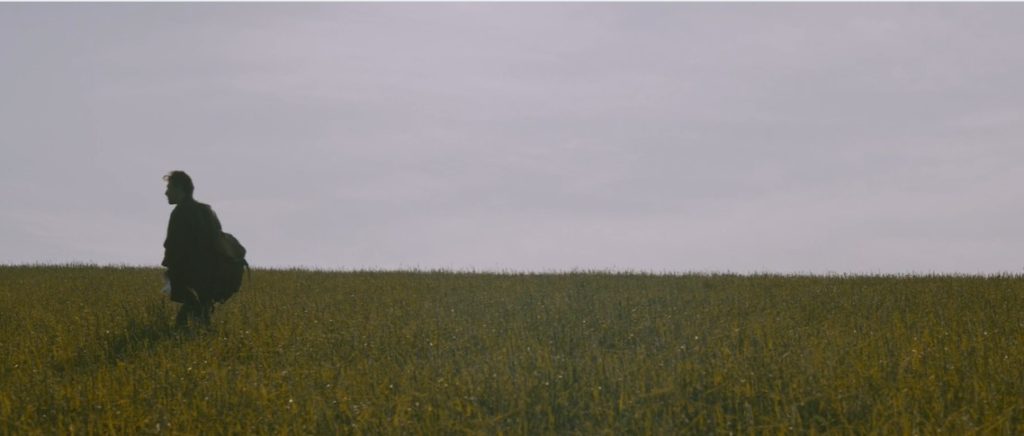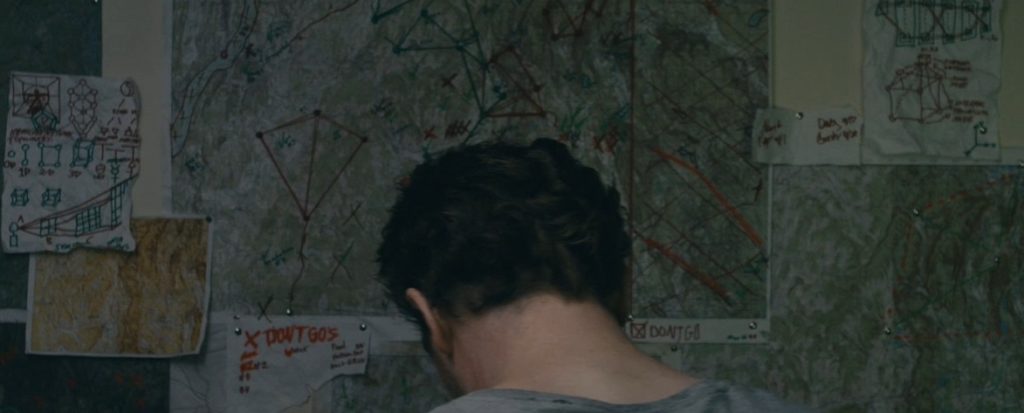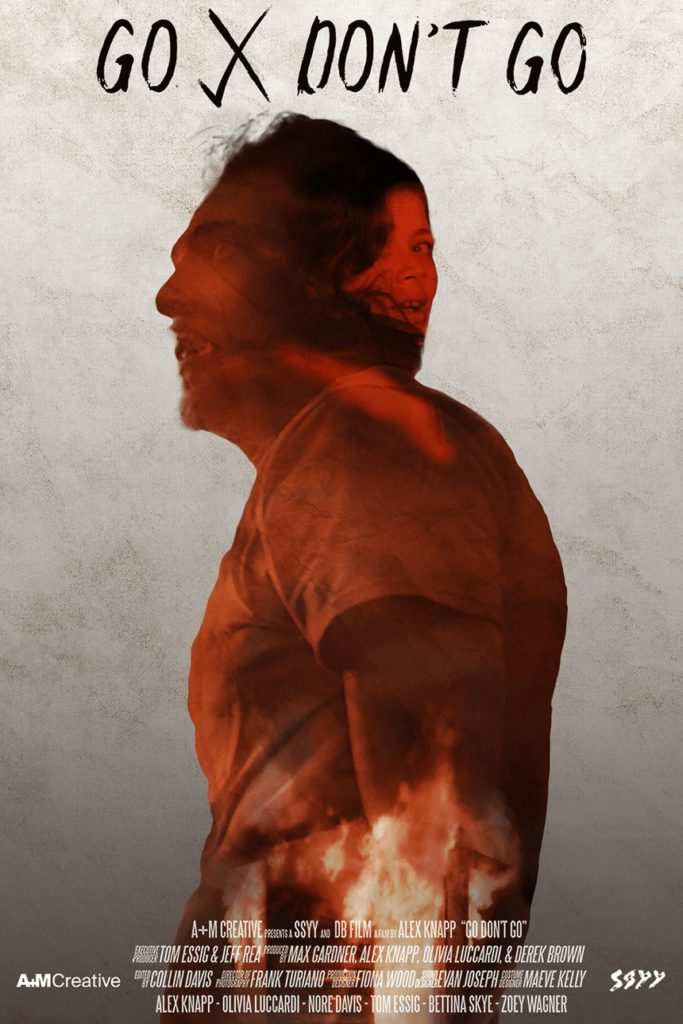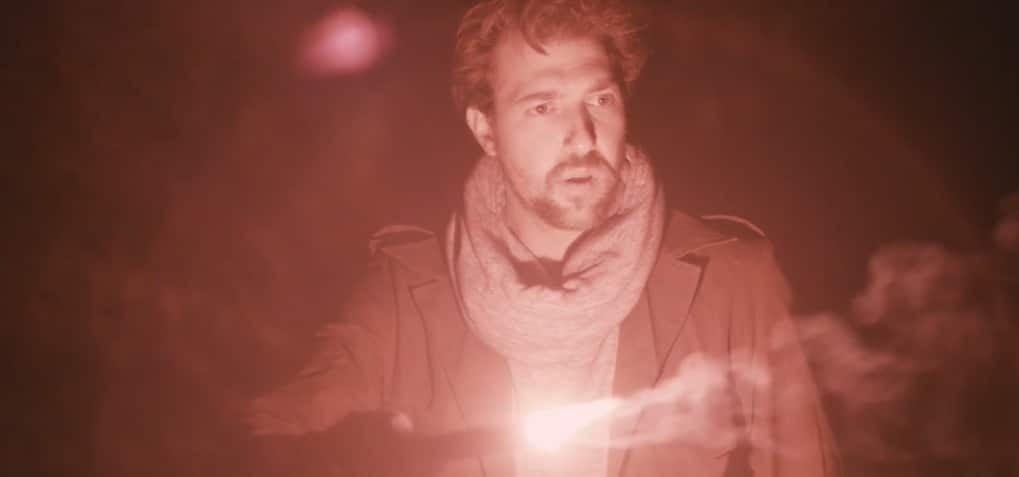
Post-apocalyptic cinema tends to be full of sound and fury. Even if we don’t see the cataclysmic event which overthrows society, we certainly see the aftermath: ruins, road gangs, disease, deprivation. But what if the kind of deprivation shown to us was of a different kind? What if the loss incurred from such an event remained resolutely personal? This is the premise behind Go/Don’t Go, a careful and subtle examination of one man’s loneliness as he struggles to cope with a world which only has him in it.
Adam (director and writer Alex Knapp) is the last man standing in suburbia. It’s a suburbia which seems to have remained fairly comfortable too: the stores are still stocked, the lights are still on. Whatever happened to everyone else, it must have been very fast indeed. So, given this material comfort, this is no survivalist horror; Adam’s chief concern is, from what we see at first, to keep himself sane. This he does by continuing to emulate his old routines, attending work, going shopping, making phonecalls (to himself). Another facet of all this is his meticulous record-keeping. By recording whether a place or a thing still serves its purpose, he is able to determine whether it is worth returning there or not. Clearly his world is getting smaller, his sense of self is getting more and more fragile. Even in the film’s earliest scenes, Knapp is able to generate a kind of pathos for Adam, a sense of ‘what would you do?’ which is eminently relatable, because it is so everyday.

It’s made clear that Adam was a sensitive soul even at the best of times. More context for Adam’s character is added through the use of flashbacks; through these, we see that Adam always found social situations tricky, appearing nervy and awkward in company, though there’s a genuine and sweet series of moments as we see Adam’s first date and gradually-blossoming romance with K (Olivia Luccardi). His yearning for and his search for K seems to be leading him closer to her; at first, it seems as though the film is going to follow Adam to her, too, as he acts on information they had apparently shared before the unspecified event which parted them. However, nothing is as straightforward as that here. Past and present continue to meld, as the narrative focuses in on Adam’s psyche more than it does his physical moments.

Given the post-apocalyptic setting, this is an unusually intimate film, with lots of close-up shots, lots of domestic trappings and of course the domestic routines themselves. There is also a lot of (literal) ground covered as Adam roams, but it’s in the close details that Go/Don’t Go really shines. These same everyday items lose or gain significance as time moves on; the simple sound of a glass against a surface triggers a happy memory of sitting at a bar, for instance, whilst a mobile phone – with no one left to call – dies slowly, and it barely matters. Something else which stands out is the use of sound. The initial shift between (social) noise and silence is very effective in making you notice the latter. It also makes the audience, alongside Adam, jump at the familiar, humdrum sounds which drag him out of himself temporarily. As much as this film reminds me of anything, then I’d say there’s some shades of Jeremy Gardner’s work here: the isolation and wide open spaces of The Battery (2012) and the flashbacks to happier times in love of After Midnight (2019), but – given the lone protagonist – almost completely shorn of dialogue, and with flashes of something altogether more fearful. Elements of fear are doled out very carefully in Go/Don’t Go, and are all the more effective for it.
Essentially, this film is a horror of hoping. The symbolism of the steadily-failing lightbulbs seems to represent Adam’s nostalgia, and how he becomes stifled by it. Nostalgia is another key driver here, one which soon becomes utterly overwhelming, for Adam and for the audience. The end result is a pensive, very subtle piece of filmmaking with a sharp, sensitive central performance.
GO/DON’T GO will be released via Gravitas Ventures on January 12th 2021.
